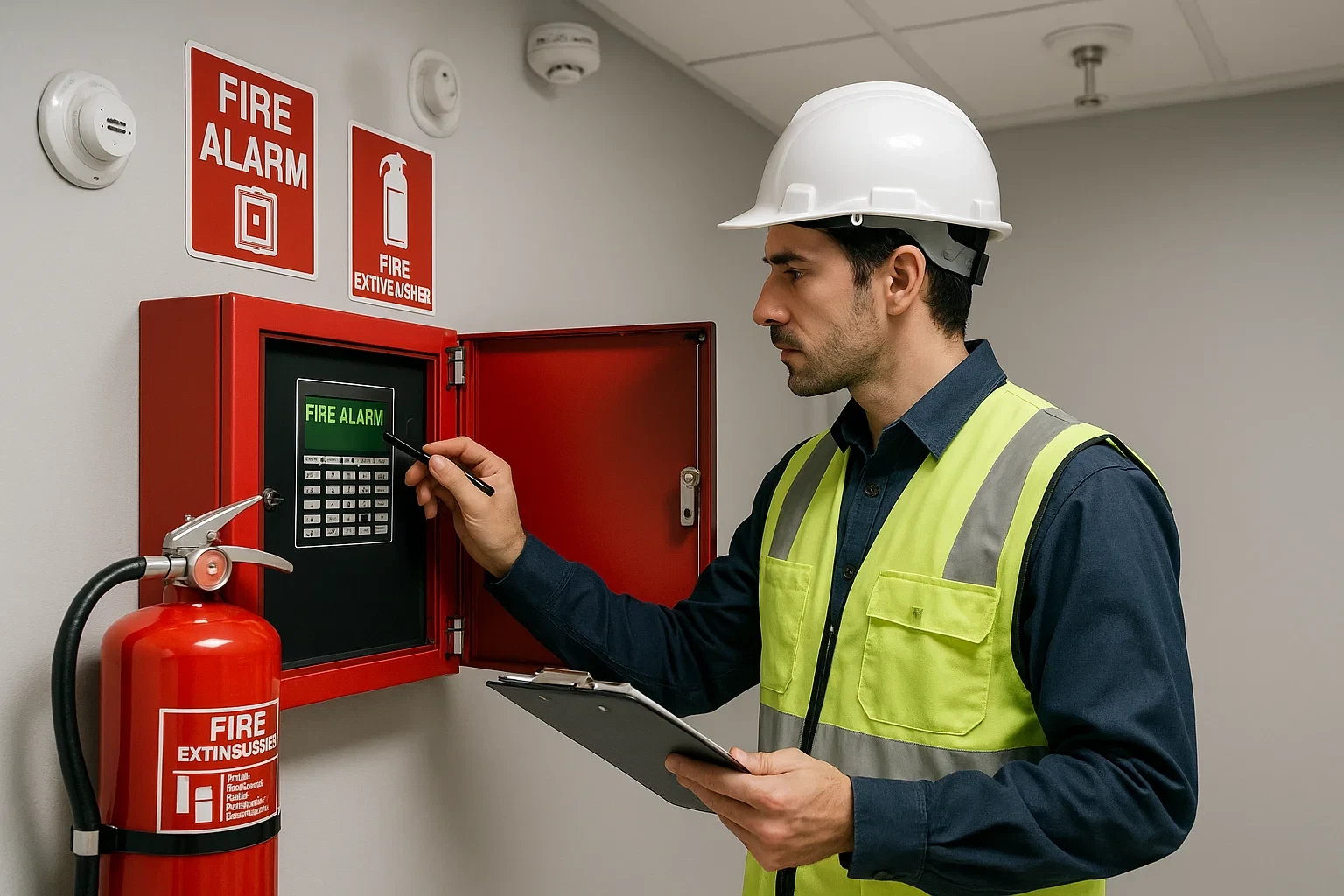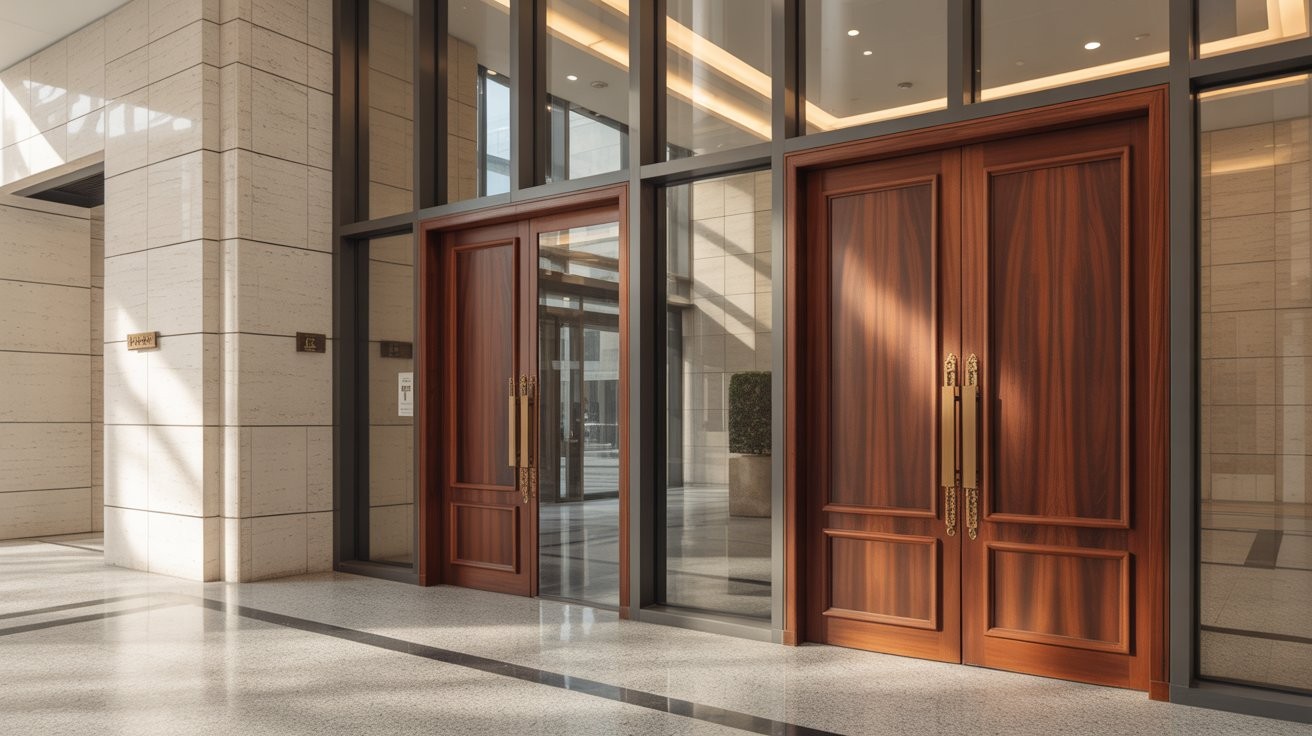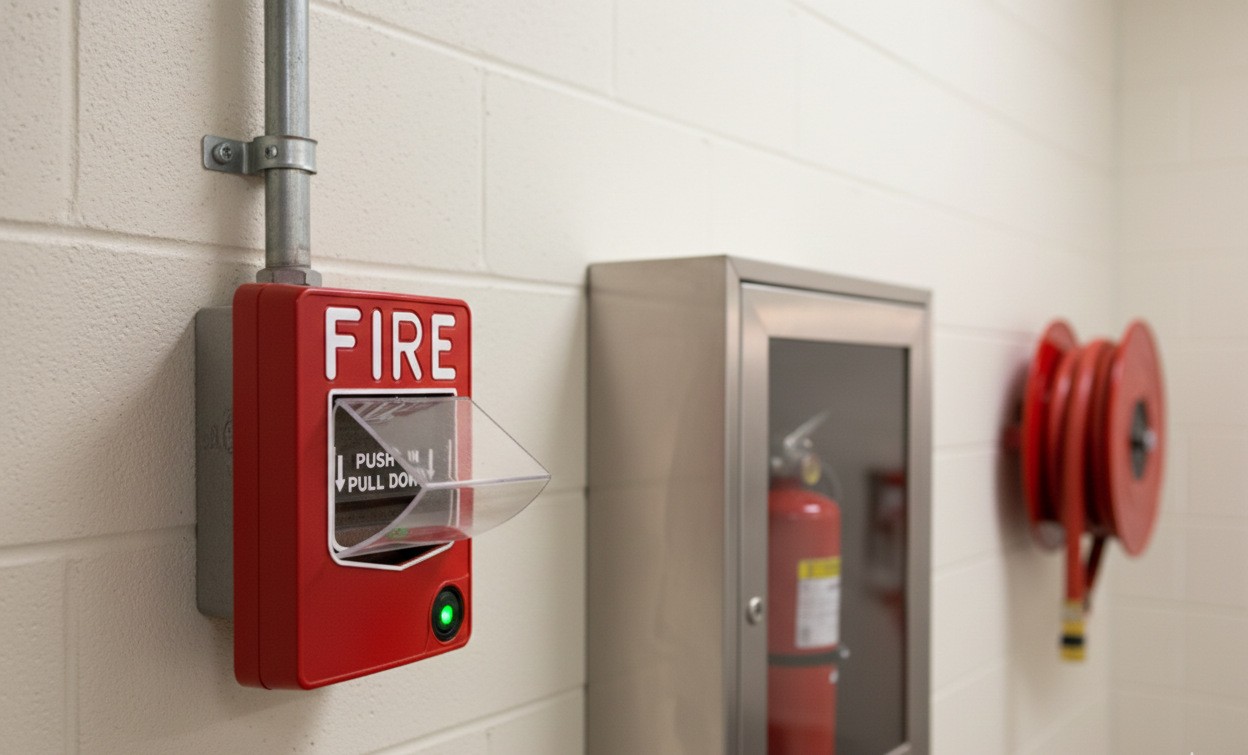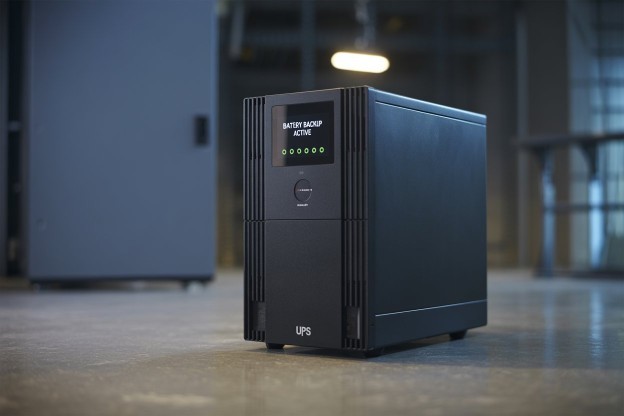In any residential, commercial, or industrial facility, fire alarm and fire fighting systems are essential components of overall safety infrastructure. These systems serve as the first line of defense in the event of a fire, providing early warning and initiating firefighting efforts to prevent loss of life and minimize property damage. However, their effectiveness is directly tied to their condition and reliability, which can only be ensured through regular maintenance. This blog explores why consistent upkeep of fire alarm and fire fighting systems is not just a recommendation but a necessity.
Why is it Important to Have Fire Alarm Inspections?
Routine inspections and maintenance help identify potential issues before they become life-threatening. When these systems are not maintained, they can break down when you need it the most, thereby endangering people and adding risks to businesses. Let us look at a couple of reasons why making regular checks and getting maintenance help is important.
1. Ensuring System Reliability
Over time, fire protection systems can degrade due to environmental conditions, wear and tear, or technical faults. Proper maintenance helps guarantee that all the parts in a fire alarm system are functioning as intended. Keep the following factors in mind.
- Dust and dirt can accumulate in detectors, affecting sensitivity.
- Equipment such as valves and pumps can develop problems from electrical surges or outdated software.
- Scheduled testing and servicing ensure the system activates correctly when needed, avoiding dangerous malfunctions in emergencies.
- Battery life and power supply issues can compromise system performance.
- Corrosion and moisture can damage system components.
2. Compliance with Safety Regulations
It is important to follow local fire codes and rules not only to avoid getting fined but also to ensure that safety standards are consistently met. National Fire Protection Association (NFPA) guidelines, local fire department rules, and building insurance policies typically require:
- Annual inspections by certified professionals
- Frequent system tests and evaluations
- Documentation of all maintenance activities
- Upgrades to meet evolving standards.
- Coordination with emergency services
Non-compliance can lead to legal consequences, hefty fines, or even closure of business premises.
3. Early Detection of Issues
Faults that go unchecked may escalate into big errors later. Routine inspections can catch:
- Corroded pipes in sprinkler systems
- Low battery voltage in smoke detectors
- Software malfunctions in fire panels
- Disconnected wiring or loose connections
- Blocked or obstructed sprinkler heads and detectors
When detection takes place early, repairs are easier and prevents emergencies from escalating due to inoperable equipment.
Read More: How to Choose the Best Fire Alarm System for Your Building?
4. Bigger Savings in the Future
Preventive maintenance is far more cost-effective than reactive repairs or post-incident recovery. The cost of a single fire incident can far outweigh the expenses associated with regular upkeep.
- Preventing equipment failure reduces emergency service calls.
- Repairing a faulty detector is cheaper than repairing the consequences of an unchecked fire.
- Regular inspections can extend the life of the entire fire protection system.
- Insurance premiums may be lower for well-maintained systems
- Avoidance of fines and legal costs due to non-compliance
By investing in maintenance, organizations save money and avoid unplanned downtime.
5. Preserving Insurance Coverage
A lot of insurance companies require you to provide evidence of periodic fire safety inspections and routine maintenance. Refusing to comply may cause the policy to be terminated or can result in significantly higher premiums. Make sure you're aware of the benefits of regular inspections outlined below:
- Properly filled out inspection records show that steps were taken to avoid accidents.
- Insurance claims are more successful when proper upkeep is given to safety systems.
- People who act proactively on safety may be given discounts by certain insurers.
- The upkeep of the system both preserves assets and helps the company financially.
- Reduction of liability in case of incidents
6. Protecting Lives and Assets
Keeping the fire system well maintained is necessary to protect people. A well-working alarm system may protect you from a potential fire disaster.
- If alerts happen early on, it is easier for people to get out safely.
- Fighting a fire as soon as possible can prevent it from spreading.
- A fast reply can greatly lower the rate of incidents and deaths.
Keeping employees safe at work increases their satisfaction and meets the employer’s responsibility towards them.
7. Battery Replacement
Batteries are the lifeblood of standalone detectors and backup systems. Without regular checks:
- Detectors may stop functioning silently.
- Backup power may not activate during an outage.
Best practice involves:
- Testing batteries monthly.
- Replacing them at least once a year or per manufacturer recommendations.
- Using long-life batteries where applicable.
Neglecting battery maintenance undermines the entire system’s reliability.
8. Professional Inspections
While in-house checks are helpful, professional inspections bring expert-level scrutiny that most internal teams may lack.
- Certified technicians are trained to identify subtle or complex issues.
- Professionals use diagnostic tools to test performance accurately.
- Documentation from licensed inspectors satisfies regulatory and insurance requirements.
Annual or semi-annual professional assessments are critical for system integrity and peace of mind.
9. Stay Proactive and Prioritize
Fire protection is not a “set it and forget it” system. A proactive mindset ensures that fire alarm and fighting systems are always ready when needed.
- Establish a maintenance schedule and stick to it.
- Keep clear records of inspections, repairs, and component replacements.
- Educate staff on fire safety procedures and alarm response.
Making fire safety a priority enhances organizational resilience and demonstrates a strong safety culture.
10. Preventing False Alarms
False alarms can disrupt operations, desensitize personnel, and strain emergency services. Regular maintenance helps:
- Calibrate sensors to reduce false positives.
- Identify and repair malfunctioning components.
- Ensure that alarms trigger only when necessary.
Minimizing false alarms maintains credibility with emergency responders and avoids unnecessary panic.
Also read: Addressable vs. Conventional Fire Alarm Systems: Key Differences
Conclusion
Fire alarm and fire fighting systems are silent sentinels, ready to act, but only if maintained properly. Regular inspections, battery replacements, and professional evaluations are not optional; they are essential components of a responsible safety strategy. For reliable fire alarm and fire fighting system maintenance in Qatar, you can trust Electra. With our QCDD-certified expertise and commitment to global standards, we ensure your systems are always ready to perform when it matters most. By staying compliant, catching issues early, and prioritizing preventive maintenance, organizations not only protect their people and assets but also create a safer, more secure environment for everyone involved.






